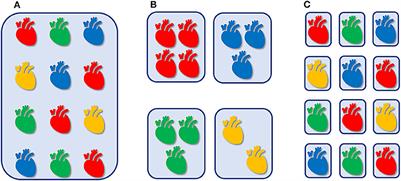EDITORIAL
Published on 31 May 2021
Editorial: Precision Medicine in Neonates

doi 10.3389/fped.2021.702760
- 2,456 views
- 3 citations
16k
Total downloads
66k
Total views and downloads
EDITORIAL
Published on 31 May 2021

REVIEW
Published on 19 May 2021

ORIGINAL RESEARCH
Published on 30 Apr 2021

REVIEW
Published on 01 Apr 2021

REVIEW
Published on 31 Mar 2021

ORIGINAL RESEARCH
Published on 16 Feb 2021

REVIEW
Published on 30 Oct 2020

ORIGINAL RESEARCH
Published on 30 Oct 2020

REVIEW
Published on 23 Oct 2020

MINI REVIEW
Published on 07 Oct 2020

ORIGINAL RESEARCH
Published on 18 Sep 2020

REVIEW
Published on 28 Jul 2020
